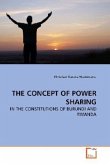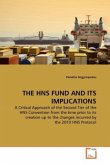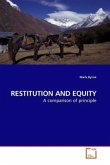This book is an analysis of the constitutive power of
law and its role in the subalternization of subjects
in Colombia. It analyzes the way law became central
in the process of occidentalization of indigenous
peoples and in the constitution of the Colombian
nation as an inclusive/exclusive imagined community.
It is based on a multilayered historical, textual
analyses of archival documentation and
interviews to indigenous rights activists, former
guerrilla members, and members of the Colombian
elites. This work begins with an analysis of the way
law was used during the colony to constitute an
occidental identity and goes on to analyze some 19th
century Colombia legal artifacts in order to show the
logic of incorporation into modernity that repeats
itself in different waves of globalization. It
analyzes the incorporation of indigenous rights in
the 1991 Constitution, its implementation by the
Colombian Constitutional Court and its role in
constituting a liberal identity as part of neoliberal
governmentality. It also analyzes the processes of
resistance of indigenous peoples and the way their
claims are framed in legal terms in order to be heard
by the national state.
law and its role in the subalternization of subjects
in Colombia. It analyzes the way law became central
in the process of occidentalization of indigenous
peoples and in the constitution of the Colombian
nation as an inclusive/exclusive imagined community.
It is based on a multilayered historical, textual
analyses of archival documentation and
interviews to indigenous rights activists, former
guerrilla members, and members of the Colombian
elites. This work begins with an analysis of the way
law was used during the colony to constitute an
occidental identity and goes on to analyze some 19th
century Colombia legal artifacts in order to show the
logic of incorporation into modernity that repeats
itself in different waves of globalization. It
analyzes the incorporation of indigenous rights in
the 1991 Constitution, its implementation by the
Colombian Constitutional Court and its role in
constituting a liberal identity as part of neoliberal
governmentality. It also analyzes the processes of
resistance of indigenous peoples and the way their
claims are framed in legal terms in order to be heard
by the national state.








